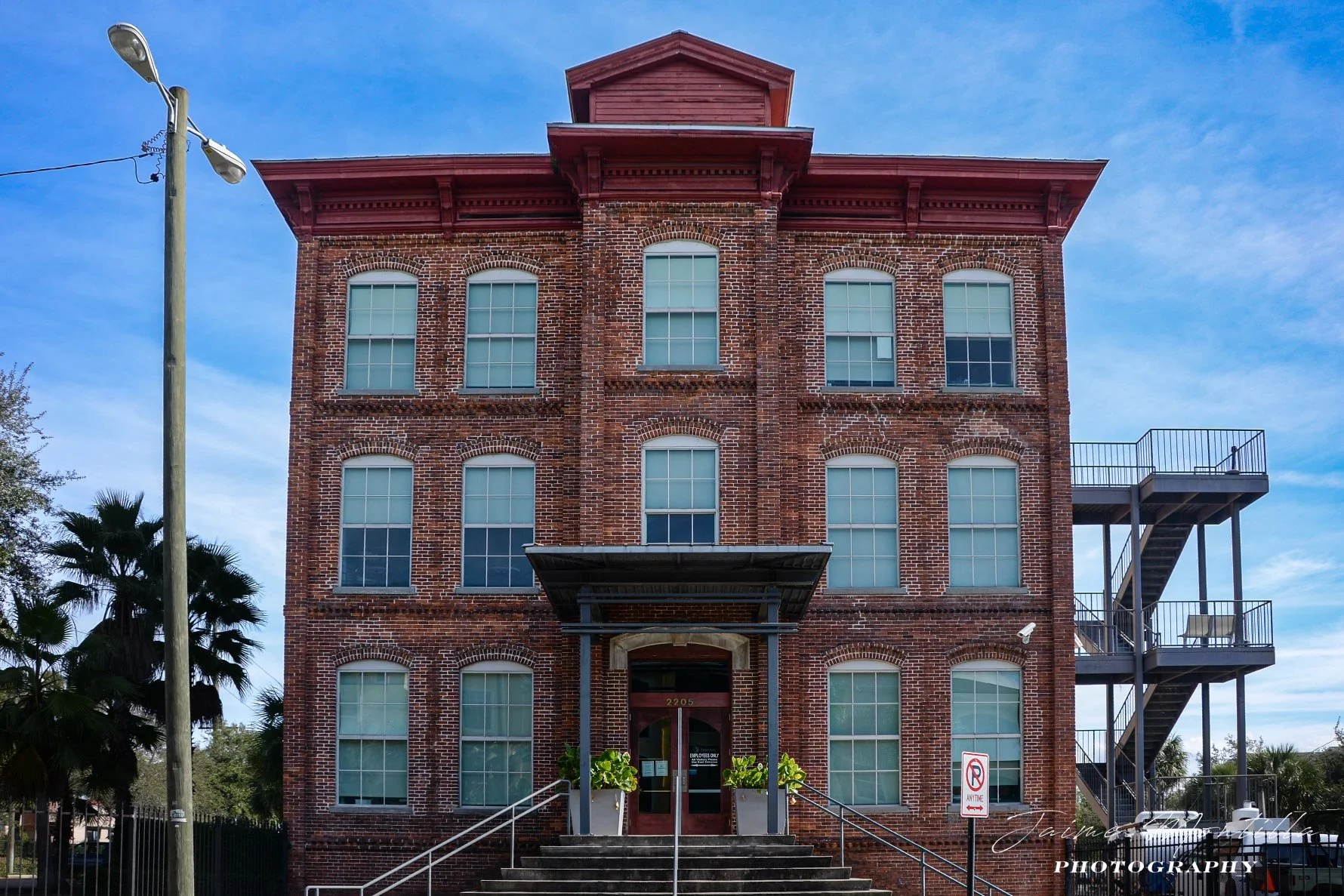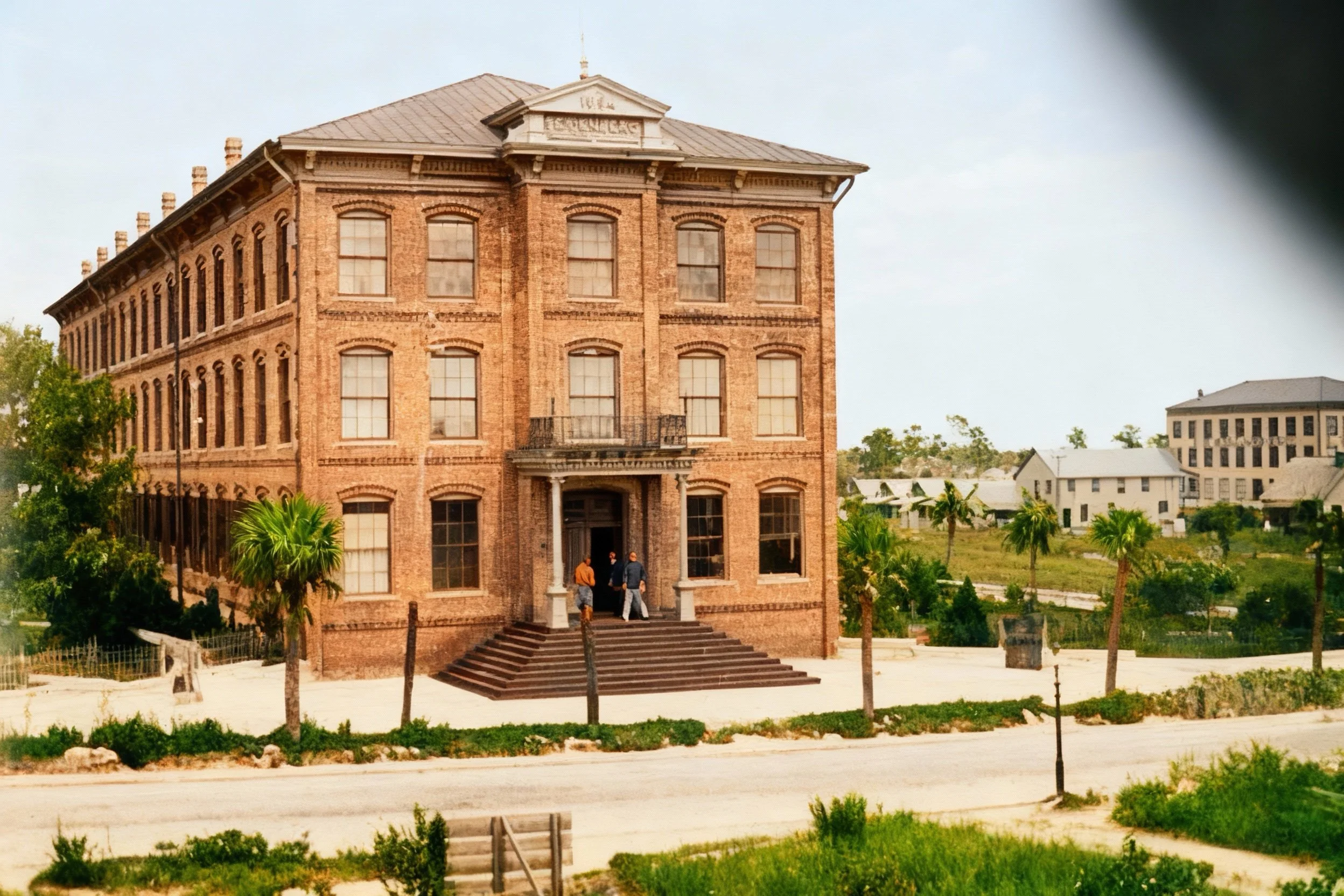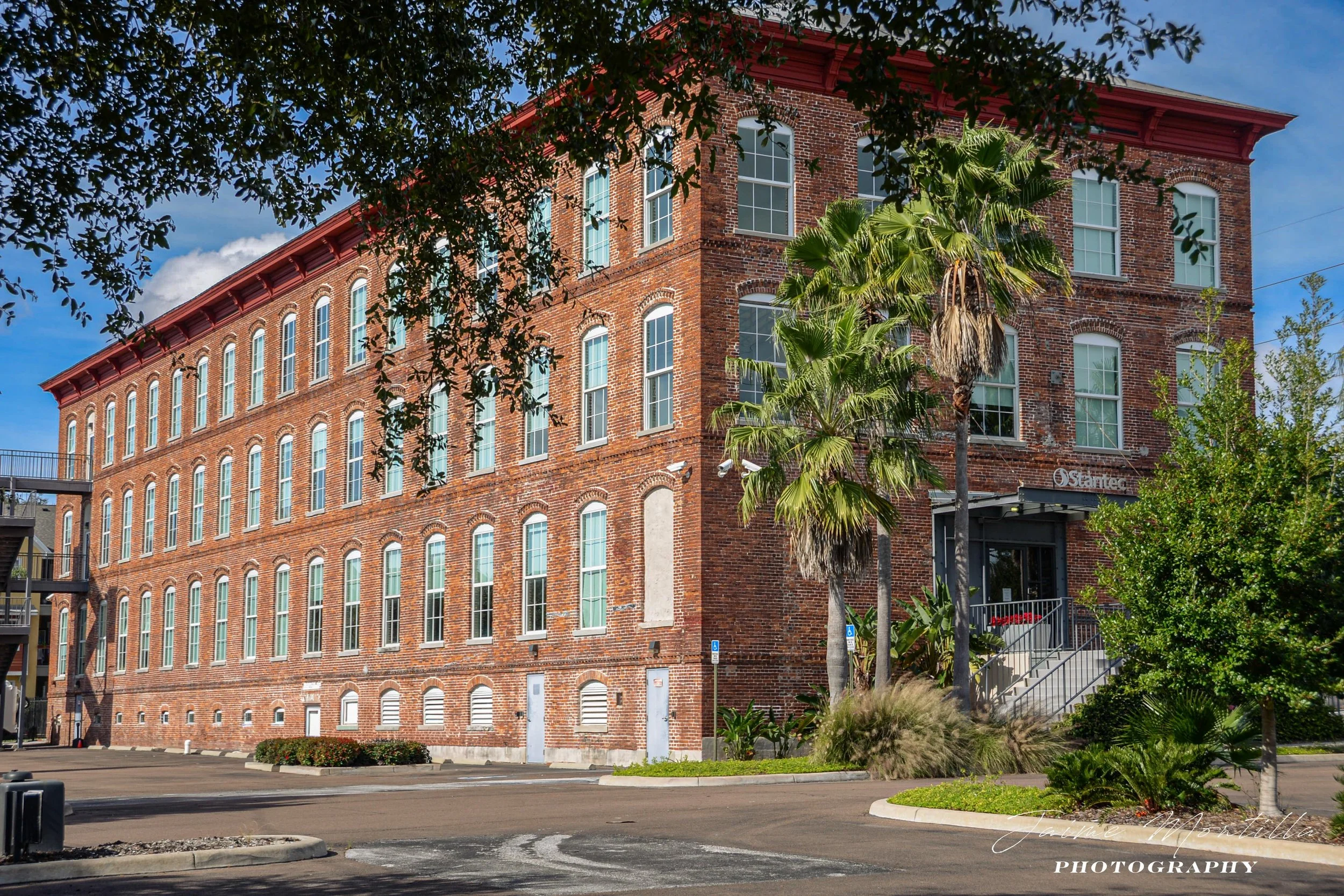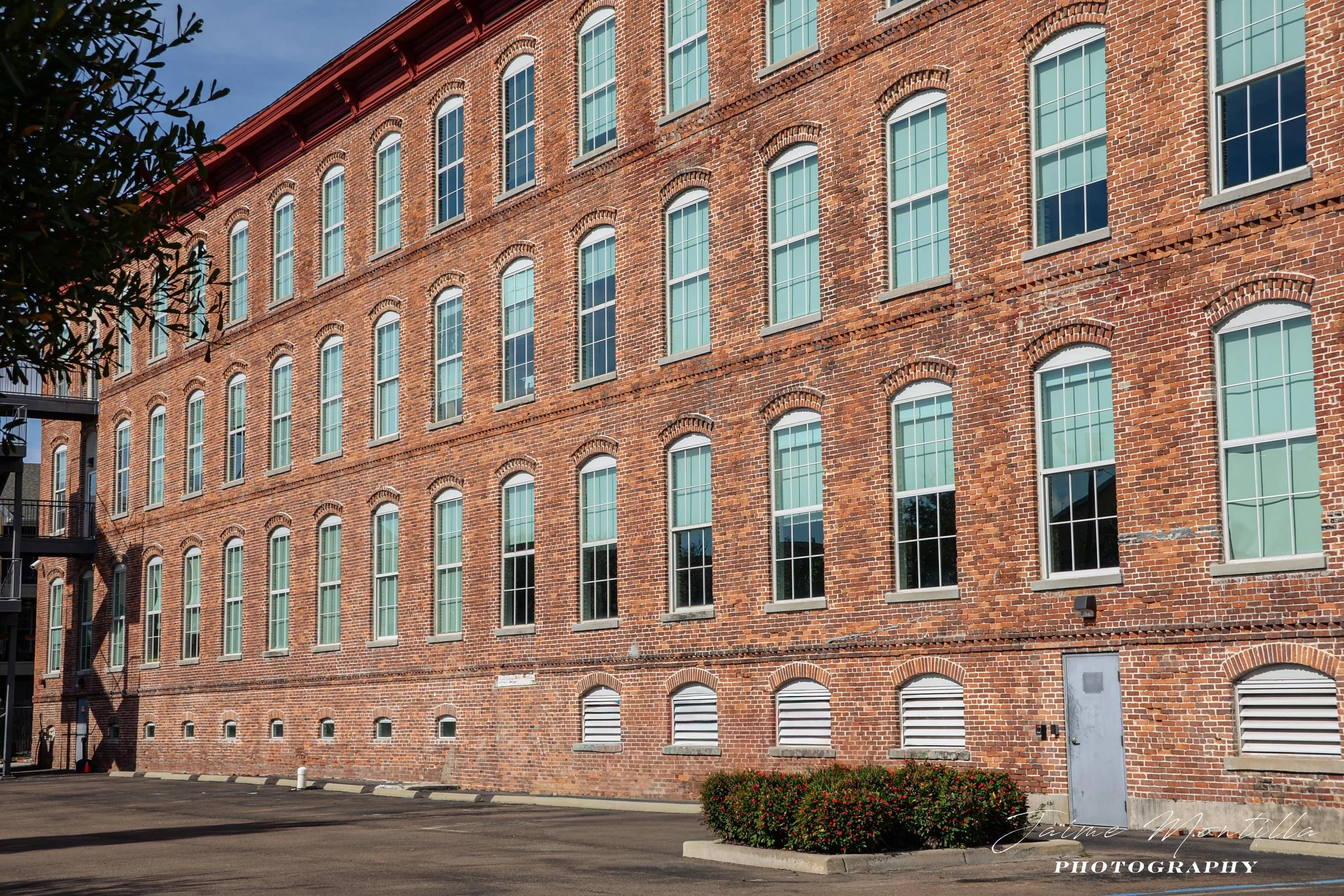
Seidenberg & Co.
Ybor City
Joseph Seidenberg (1831-1896) and Samuel Seidenberg (1836-1924) were born in Schwetzingen, Baden-Württemberg, Germany to Moritz "Maier" Seidenberger (1802-1879) and Barbara “Babet” Levi (1805-1868). In 1895 the New York Tribune published the e book Americas Successful Men of Affairs An Encyclopedia of Contemporaneous Biography which section on Joseph Seidenberg states that he emigrated to New York City in the early 1840’s where his first job was in the cigar industry. No so detailed information has been found on Samuel except his 1878 naturalization papers that show him as a "segar” manufacturer in New York.
William H. Wall arrived in key West in the 1820s after a shipwreck and decided to settle there. Instead of turning to wrecking (salvaging ships, which was common in Key West), he invested in manufacturing and established the first cigar factory in Key West in 1831 at Front St. between Duval St. & Fitzpatrick St., employing some fifty workers that had arrived from Cuba to work there. This factory was destroyed by fire in 1859 forcing the employees to seek jobs elsewhere. During those years there were few opportunities for cigar workers in Key West where only a small number of Chinchales were in business needing only a few workers. In 1867 Joseph Seidenberg opened a cigar factory in Key West where though small at the time there was already an established cigar industry and the availability of experienced workers. Timing was perfect as the outbreak of the Ten Year’s War in 1868 created an exodus of workers and manufacturers of the tobacco trade. Seidenberg was followed in Key West by Vicente Martinez Ybor who relocated from Cuba in 1869. By 1875 Seidenberg and Martinez Ybor with 11.7 million and 10.2 million cigars produced respectively, were the largest of the twenty one factories operating in Key West.
While in Key West Seidenberg produced La Rosa Española, Librador and Lorenzo "Clear Havana" cigars, Seidenberg & Co. handled all sales for the Key West factory from New York. In 1881 they established a cigar factory at the corner of 1st Ave. & E 74th St. in New York where they produced the Figaro, Lillian Russell and Duke Orlando cigar brands. It appears that Seidenberg & Co. ran into financial difficulties as reported in the New York Times edition of December 16, 1880 in an article with the heading "A Large failure in the Tobacco Trade". However, it appears they were quickly able to overcome the situation.
A five week major labor strike began in August 1885 that almost paralyzed cigar production when for part of the duration only two cigar factories remained open. In April 1886 a fire destroyed both Marinez Ybor and Seidenberg's Key West factories. Seidenberg decided to rebuild while Martinez Ybor decided to relocate to Tampa. After the 1885 strike, workers were deeply involved in Cuban revolutionary politics, and strikes often had both economic and political dimensions creating constant disruptions for factory owners. After a strike in 1894, Seidenberg refused to employ Cuban cigarmakers any longer and proceeded to employ only Spaniard workers to replace them. In 1895 after a lenghty Government involvement to appease the labor issues, Seidenberg decided to relocate to Tampa and began construction of this factory building at 2205 20th St. in Ybor City. While construction was ongoing, frame buildings on Lafayette St. and Franklin St. in the Tampa downtown area were temporarily occupied.
Francisco "Pancho" Arango (1864-1943 ) left Spain in 1877 for Cuba where he learned the cigar manufacturing trade. In 1895 he relocated to Tampa where he took a job as foreman at the new Seidenberg & Co. cigar factory. On November 9, 1899, the American Tobacco Co., also known as "The Trust", incorporated the Havana-American Co. in New Jersey to merge and consolidate the operations of the several companies, all of which continued to operate under its own name as a subsidiary branch until 1909 when the Havana-American Co. was taken over by American Cigar Co., a subsidiary of American Tobacco Co. These companies were:
In 1900 the American Tobacco Co. selected Pancho Arango as its General Manager in Tampa, position he kept for ten years. He was then transfered to Havana as General Manager of the Havana Tobacco Co., the Cuban branch of the "Trust" where he remained for four years. Upon his return to Tampa, ca. 1915 he established Francisco Arango & Cia. to manufacture the Pancho Arango brand cigar. Francisco Arango & Cia. occupied the Corral Wodiska factory building on 19th Street & 2nd Ave. from 1919 to 1922 when it could not survive the effects of the workers strike of 1921 and was acquired by the New York-Tampa Cigar Co., a newly incorporated subsidiary of the Porto Rican-American Tobacco Co. In 1929 Arango bought The Tampa Cigar Co. then located at 2512 15th Street in Ybor City where today is La Segunda Central bakery.
After Seidenberg & Co. became part of The Havana-American Co., Joseph Seidenberg's son William J. Seidenberg (1866-1934), established the W. J. Seidenberg & Co. headquartered in New York with factories up and down the east coast. W. J. Seidenberg & Co. became one of the largest cigar manufacturers in the United States, employing from one thousand five hundred to two thousand workers. In 1895 Randolph J Seidenberg (1867-1931) established a cigar retail outlet in Buffalo, NY that eventually became a chain of fifteen retail outlets in nine eastern cities. His company R. J. Seidenberg & Co., which was strictly a retailer, is often mistaken for Seidenberg & Co.
From 1914 to 1928 this building was occupied by M. Valle & Co., a subsidiary of the American Cigar Co. who after 1928 maintained a warehouse storage facility in this building. On December 16, 1974, the building's then owner, the 2205 20th Street Corp., transfered title to Universal Cigar Corp. based in New York who on December 19, 1986 transfered title to Edward Gropper. On February 18, 1994 title was again transfered, this time to the Bay Brewing Co. and until the early 2000s was the home of the Ybor City Brewing Co. It was afterwards the offices of Wilson Miller and Granite Services who now occupy the Corral-Wodiska & Cia. cigar factory building. It was recently occupied by Stantec, an architectural and engineering firm and since 2019 is occupied by Transferwire, a London based financial tech firm. In 2023 it was reported that the building has been purchased by Alliant Partners Development, Ellison Development and Alfonso Architects.
Although Hillsborough County records show its date of construction as 1905, this 36,640 sq. ft. building was designed by C. E. Parcell and constructed in 1895. The pictures below show the Seidenberg factory building as it looked in 1900 when occupied by Seidenberg & Co., photo courtesy of Tampa-Hillsborough County Public Library System. For a period of time when it was used as a warehouse, all of the windows were bricked up, today it has a strong resemblance to its original look although modern glass windows have been installed.
___________________________________________________________
* There was an Emil Seidenberg (1844-1924) also born in Baden Germany who arrived in the US in November 1868 per his 1891 naturalization certificate. Emil was president of the partnership E. Seidenberg, Stiefel Co. established in April 1894 and dissolved in 1895 when a new partnership also named E. Seidenberg, Stiefel Co. was established. Already in 1896 E. Seidenberg, Stiefel & Co. had financial problems as evidenced by the court case Sutliff v. Seidenber, Stiefel Co. decided by the Supreme Court of California on February 27, 1901, the court case Hartford Nat. Bank v. Beinecke decided by the Appellate Division of the Supreme Court of New York on March 1, 1897 and the court case Carter-Battle Grocer Co. v. Jackson et al decided February 19,1898 by the Court of Civil Affairs of Texas. In all these court cases, Joseph Seidenberg is listed as a co-partner of E. Seidenberg, Stiefel Co. together with Emil Seidenberg, Adolph Stiefel, Bernard Beinecke and Joseph Hesdorfer. On January 16,1896 all the co-partners of E. Seidenberg, Stiefel Co. executed a general assignment of all the assets of the partnership to Milton S. Gulterman, with instruction to proceed with its liquidation. The Tobacco Leaf publication states that in 1899 the members of E. Seidenberg, Stiefel & Co. that had existed for many years, reorganized and recapitalized the firm and emerged from bankruptcy. On April 30, 1907 the American Cigar Co. sent a letter to its customers notifying that the Buffo brand of cigars formerly manufactured by E. Seidenberg, Stiefel & Co. will be sold by them. Joseph Seidenberg the partner in E. Seidenberg, Stiefel & Co. and Joseph Seidenberg the brother of Samuel were not one and the same based on Trows New York City Directory published in May 1, 1887 which has the following listings;
Emil Seidenber, segars, Ave A c E 80th with residential address 6 E 86th / Joseph Seidenber, segars, 143 Nassau with residential address 6 E 86th / Seidenberg & Stiefel, segars, 143 Nassau
Joseph Seidenber, segars, 69 Cortlandt with residential address 17 E 73rd / Seidenberg & Co., segars, 69 Cortlandt
Eugene Vallens & Co. - Chicago
S. Hernsheim Bros. & Co. New Orleans
Julius Ellinger & Co. - New York & Tampa
Horace R. Kelly & Co. - New York & Tampa
Ybor, Manrara Co. - New York & Tampa
Seidenber & Co. - New York & Tampa
D. L. Trujillo & Sons - New York & Key West






